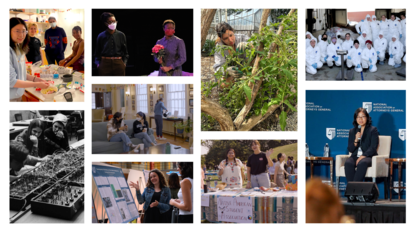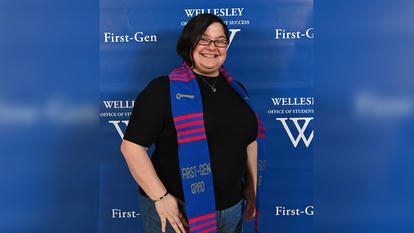Wellesley Professor Joins WGBH Radio’s Callie Crossley ’73 to Discuss the Gender Wage Gap

This year, April 10 is national Equal Pay Day, which draws public awareness to the wage gap between men and women. The National Committee on Pay Equity (NCPE) started Equal Pay Day in 1996; it falls on the date that marks how much further into the next year women need to work on average to earn what men did the previous year.
Last week on her WGBH program Under the Radar, host Callie Crossley ’73 used the occasion as a springboard for a discussion on the significance of the gender pay gap.
“It’s not a question of who made more, but instead how large is the difference in pay?” said Crossley, a Wellesley College trustee. She cited a study that found poverty would be reduced by 50 percent across the country if women were paid as much as their male counterparts and employed in jobs that maximized their fullest potential.
Guest Rosanna Hertz, Class of 1919 50th Reunion Professor of Sociology and Women’s and Gender Studies at Wellesley, pointed out, “We’ve never had pay equity; women have always been paid less than men overall even if they are in the same position.”
The Obama administration tried to address the pay gap, Hertz said, with an initiative that would have required companies to report salaries on the basis of race and gender. The Trump administration did not carry out the initiative.
Megan Costello, executive director of the Boston Mayor’s Office of Women’s Advancement and a guest during the segment, described recent state legislation that requires companies to report wage data. But, Costello said, “we can’t just talk about new laws—we have to talk about culture change.” Equitable salaries for men and women translate into a happier workforce, better products and services, and ultimately higher profits, she said.
Looking ahead, Hertz said, she’d like to see Equal Pay Day become an opportunity for women across the country to hold a national dialogue to talk about these issues and exchange ways to confront them.
To share tips on how women can combat the pay gap through more effective salary negotiation, Wellesley Career Education recently posted its article “Negotiating Your Salary As A Woman" to BuzzFeed.



